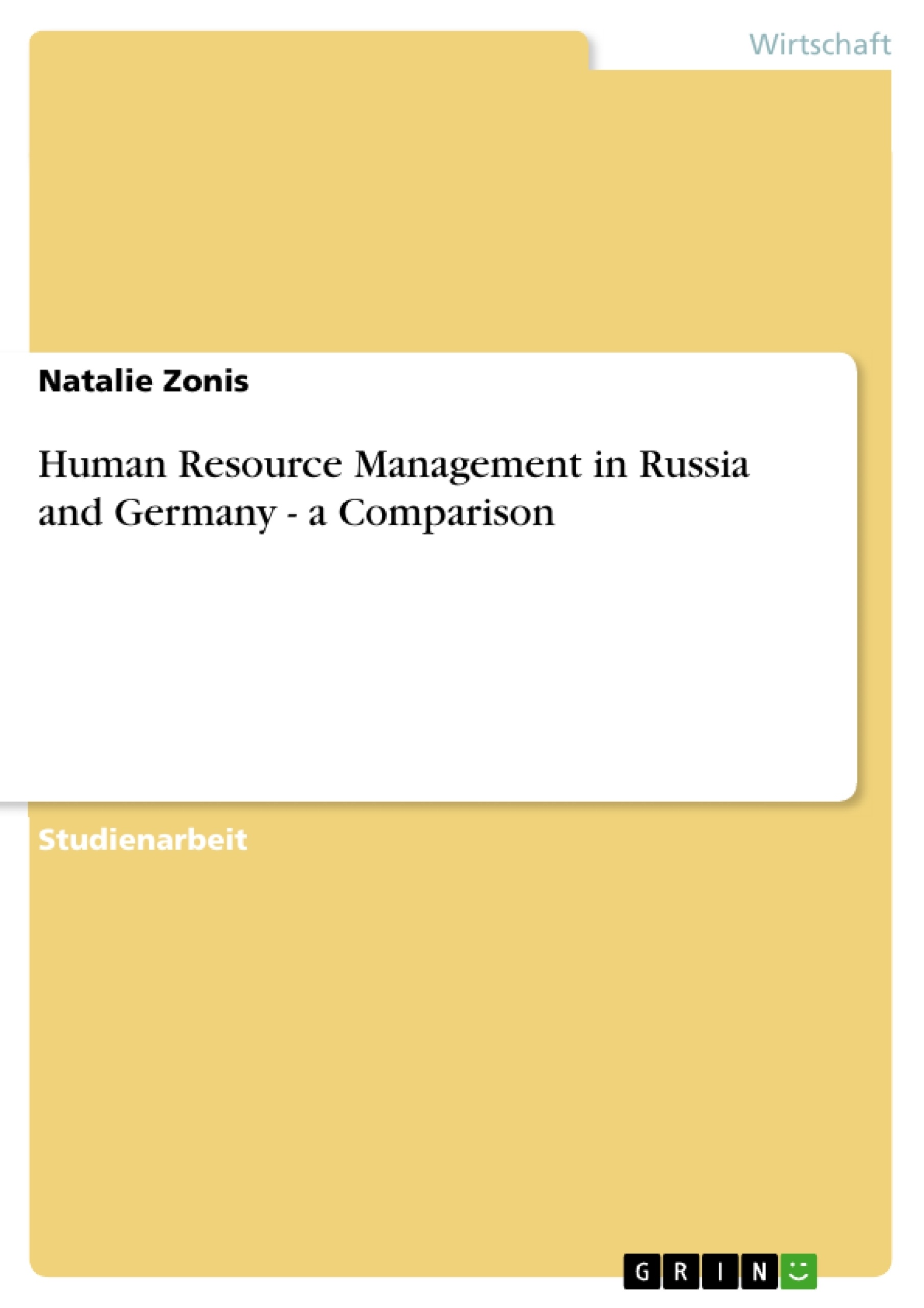Russia’s unique, very dynamic and complex business environment has not only caused great business prospects but also some difficult, painful upheaval. Therefore many Western entrepreneurs still associate risk rather than opportunity with Russia.
But nevertheless, Russia still remains the world’s largest country in terms of territory spanning nine time zones with a population of over 140 million people.
Such massive changes as the liberalization and rapid growth of the Russian economy, its substantial growth in purchasing power and a relative lack of competition in some sectors make that challenging environment an attractive destination for foreign investment – especially for the German.
Since 1997 Germany remains Russia’s most important trade partner worldwide.
Russia’s exports to Germany went up to 30 Billion Euros in 2006 and 28.8 in 2007.
But for the German companies Russian market is not less important – in 2007 the exports to Russia have had an impressing value of 28.2 Billion Euros which has increased to 20.6% from the year before. It must be noted however, that Russia’s traditional exchange of goods with its Western partners mainly sustains of the export of its raw materials (energy) and the import of manufactured goods.
Anyway, the close link and the growing dependency of both countries over the years become more and more evident. And both trade partners are considered as quite compatible as it can shortly be described by: “The German Market can deliver whatever the Russian Market desires”.
But these business engagement opportunities now appear in an environment significantly different from the German investor’s habitual home culture – and culture is a crucial factor of human resource management.
The essential knowledge of the institutional, managerial and contextual nuances is the key-factor for an effective management of human resources and successful formation of multinational enterprises.
This term paper provides the main aspects of HRM in Russia and Germany and an overview about the cultural context in which human resource management takes place. Further on it examines the key human resource issues and concerns of businesses operating in this transitional environment.
Moreover, some of Russia’s HR specifics are analyzed and the most effective tools are presented for how to overcome the difficulties and how to succeed in doing business in Russia.
Inhaltsverzeichnis
- 1. Introduction
- 2. General Aspects of Human Resource Management
- 2.1. Definition of HRM
- 2.2. International and Comparative HRM
- 3. Russia and Germany in Comparison
- 3.1. Country Profiles
- 3.2. Welfare and Unemployment
- 3.3. General Cultural Differences between Russia and Germany
- 4. HRM Profile of Russia
- 4.1. The Context for Human Resource Management in Russia
- 4.2. Labor Law and Tax Regulations
- 4.3. The HR Function in Russian Organizations
- 4.5. Recruiting and Selection
- 4.6. Income and Compensation Strategies
- 5. The Key Commandments of Successful Management in Russia
- 5.1. Practice Authoritative but not Authoritarian Leadership
- 5.2. Build a strong organizational culture with visible foreign elements
- 5.3. Work to Create an Empowered Organization
- 5.4. Respect Local Rules, But Play your own Game
- 5.5. Stand Firm on Major Goals and be Flexible on Details
- 5.6. Learn to Live and Manage in a Crisis
- 5.7. Recognize that Corruption is omnipresent in Russia and must be managed
- 5.8. Cultivate Relationships with Government Agencies at all Levels
Zielsetzung und Themenschwerpunkte
Diese Arbeit befasst sich mit einem Vergleich der Human-Resource-Management-Systeme in Russland und Deutschland. Sie zielt darauf ab, die Herausforderungen und Möglichkeiten aufzuzeigen, die sich aus den kulturellen und wirtschaftlichen Unterschieden beider Länder für das Management von Personal ergeben.
- Kulturelle Unterschiede und ihre Auswirkungen auf HRM
- Regulierung des Arbeitsmarktes und des Arbeitsrechts in beiden Ländern
- Die Bedeutung von Führungsstilen im internationalen Kontext
- Herausforderungen und Chancen bei der Personalgewinnung und -entwicklung in Russland
- Die Bedeutung von Unternehmenskultur im internationalen Kontext
Zusammenfassung der Kapitel
Das erste Kapitel gibt eine Einführung in die Thematik und beschreibt den Kontext der Analyse. Es werden wichtige wirtschaftliche und gesellschaftliche Entwicklungen in Russland beleuchtet und die Bedeutung der deutschen Investitionen in Russland hervorgehoben. Das zweite Kapitel beleuchtet grundlegende Aspekte des Human Resource Management (HRM) und definiert den Begriff. Es werden auch die Besonderheiten des internationalen und vergleichenden HRM dargestellt. Das dritte Kapitel vergleicht Russland und Deutschland anhand wichtiger Kennzahlen und kultureller Unterschiede. Die Kapitel 4 und 5 konzentrieren sich auf den HRM-Kontext in Russland. Dabei werden das russische Arbeitsrecht, die Rolle der Personalabteilung in Unternehmen, Personalgewinnung und -entwicklung sowie die wichtigsten Prinzipien des erfolgreichen Managements in Russland behandelt.
Schlüsselwörter
Human Resource Management, Internationales HRM, Russland, Deutschland, Kulturvergleich, Arbeitsrecht, Führungsstil, Personalgewinnung, Personalentwicklung, Unternehmenskultur.
Häufig gestellte Fragen
Was sind die größten kulturellen Unterschiede im HRM zwischen Deutschland und Russland?
Russland ist oft stärker hierarchieorientiert und verlangt einen autoritativen (aber nicht autoritären) Führungsstil, während in Deutschland Konsens und flachere Hierarchien üblich sind.
Wie wichtig ist die Beziehung zu Regierungsstellen in Russland?
Die Pflege von Beziehungen zu Behörden auf allen Ebenen ist in Russland ein kritischer Erfolgsfaktor für multinational tätige Unternehmen.
Welche Besonderheiten gibt es im russischen Arbeitsrecht?
Das russische Arbeitsrecht ist sehr formalistisch. Unternehmen müssen komplexe Vorschriften und Dokumentationspflichten genau beachten, um rechtliche Risiken zu vermeiden.
Wie funktioniert Recruiting in Russland?
In einem dynamischen Markt wie Russland spielen persönliche Netzwerke und spezialisierte Agenturen eine große Rolle, da der Wettbewerb um qualifizierte Fachkräfte hoch ist.
Was bedeutet „autoritative Führung“ im russischen Kontext?
Mitarbeiter erwarten oft klare Entscheidungen und eine starke Führungspersönlichkeit, die Verantwortung übernimmt, aber dennoch respektvoll mit dem Team umgeht.
- Quote paper
- Natalie Zonis (Author), 2011, Human Resource Management in Russia and Germany - a Comparison, Munich, GRIN Verlag, https://www.hausarbeiten.de/document/165597


